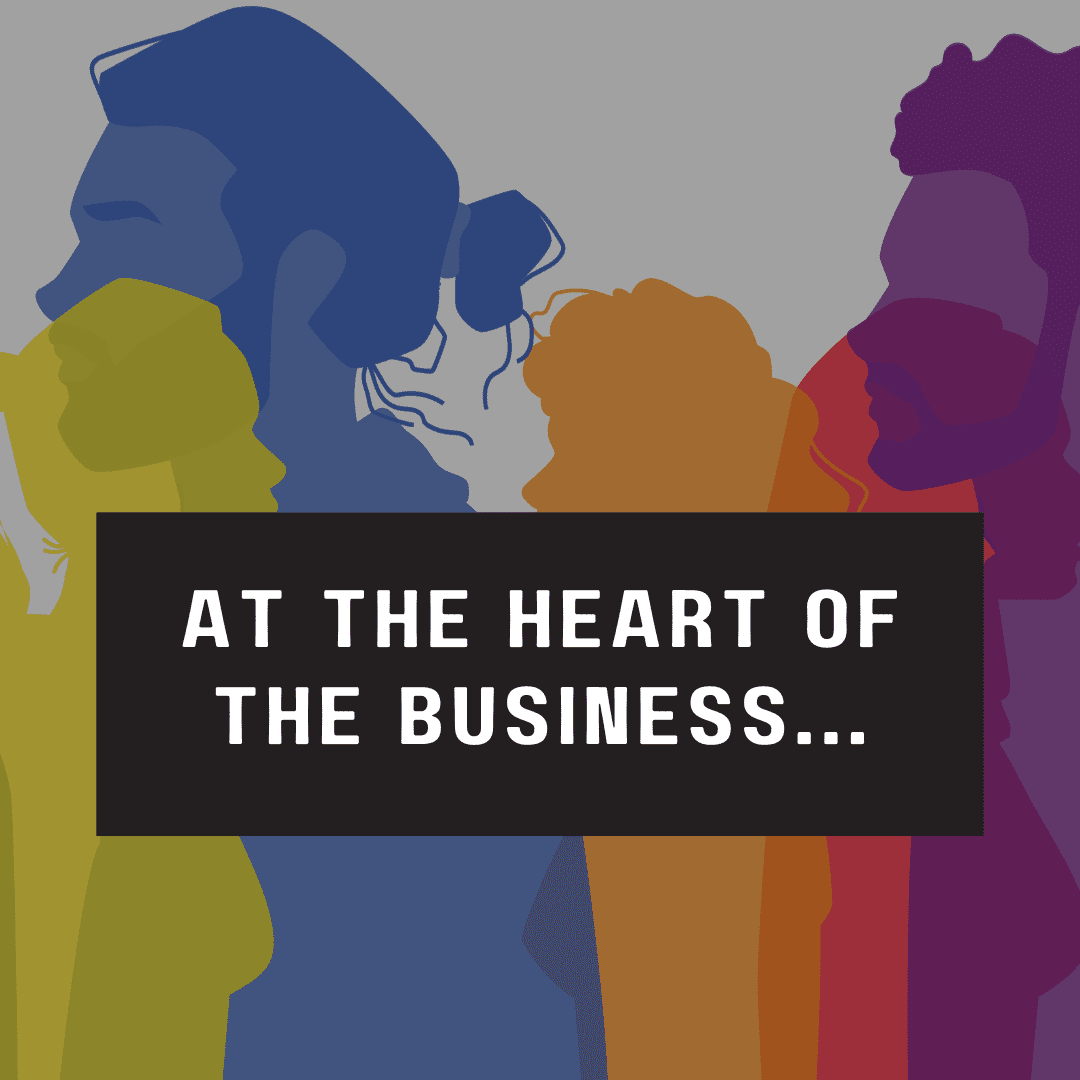Values Into Action co-founders, Marian and Paul Saulino, were invited to contribute to the National Leadership Consortium‘s January 2025 Bulletin, “At the Heart of the Business.” With Values Into Action celebrating 20 years in 2025, the article allowed Marian and Paul to reflect on the organization’s founding values and ideals.
We encourage you to read the Bulletin because it offers relevant and thought provoking information to help move our field forward. You can download the issue featuring Marian and Paul here. Or, check out the entire history of bulletins here. Fun fact, you’ll find an article about our approach to participatory decision making, written by Rachel Milano-Davis, in Bulletin #6 on page 11.
In their article titled, “The Bottom Line IS the People,” Marian and Paul share:
- Leaders at provider organizations should center their work around “co-production.”
- “Co-production” means working as equals with people with disabilities to design, develop, and evaluate their services together.
- Prioritizing services that work best for the people with disabilities being supported may not make business sense sometimes but should always be what service providers strive to do
Starting an organization, Values Into Action, that works honestly and intentionally to provide Home and Community-Based Services (HCBS) with the people who use them turned out to be easier than expected. This approach, called co-production, supports civil rights. We based our decisions and organizational choices on it whenever we had the chance.
We began our careers during the Self-Determination Movement in the 1990s, inspired by the Robert Wood Johnson Foundation’s Self-Determination Projects. Pennsylvania was part of this effort and an early leader in sharing power with those affected by policies and services. What we called “self-determination” then is now known as “co-production” of publicly funded services and supports.
Co-production means working as equals with people who use health and care services, their families, staff, and communities. It involves everyone from the very start—designing, developing, and evaluating services together.
As service providers, we are experts in:
- Knowing local, state, and federal rules for public funding.
- Managing public funds to support people effectively.
- Designing support systems that combine natural and specialized resources.
- Using planning tools and facilitation skills to help groups work well together.
- Supporting self-advocacy by assuming competence in everyone.
- Respecting families’ right to make their own decisions.
We believe people and their families are the experts on their own lives. Our role is to make decisions that align with our expertise, mission, vision, and values.
Why Do We Do This Work?
Because everyone has the right to control their own life.
How Do We Do This Work?
We presume competence in everyone we meet. We use our skills and knowledge to help people create and maintain the life they want with their HCBS services.
What Do We Do?
We provide services and support so people can live, work, play, and worship where and with whom they choose.
Our process always involves those affected by policies, rules, or services. Personal planning helps identify services that meet a person’s goals. The person chooses their goal, and we explain which services can help them achieve it and which we can provide.
Our decision making considers whether we can:
- Pay workers a livable wage with the current funding rate
- Meet service standards with available resources
- Deliver services in the best interest of the people accepting services
As stewards of public trust, we carefully balance financial responsibility with the wellbeing of those we serve and employ. We also honor our responsibility to the community, especially as nonprofits. System transformation and adapting to change are essential for organizations committed to supporting their communities.
Sometimes, we offer services that don’t cover costs. For example, in 2013, we agreed to provide Supports Broker services even though it wouldn’t ‘break even’ after paying fair wages and covering compliance and administration costs. We made this decision based on our mission and belief in self-direction. With that in mind, we took a long-term view with no expectations for short-term benefits other than helping people using self-direction to have access to a Supports Broker.
Today, we are the largest provider of Supports Broker services in Pennsylvania. State and national policymakers seek our guidance and examples. We help shape policies that enable people using self-direction and HCBS services to have choice and control.
This success wouldn’t be possible without the input and leadership of those affected by our services.
They are involved in every step — decision making, design, implementation, and evaluation.
We are eager to share our experiences and work with others to build a system where people are always the bottom line.
Source: The National Leadership Consortium Bulletin • Issue 13 • January 2025 21
